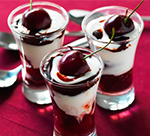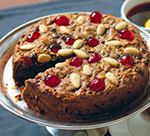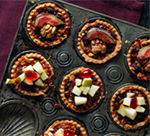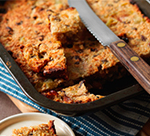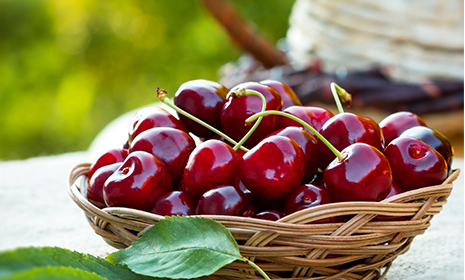
Short and sweet
Shiny, red and perfectly formed, cherries are low in fat and have a low glycaemic index (GI), as well as being a good source of fibre, vitamin C, potassium, magnesium, copper and iron.
This small fruit contains soluble fibre that can help lower cholesterol and, research has shown, people who eat more potassium-containing foods, like cherries, tend to be less likely to have high blood pressure.

And there's more...
Cherries also contain melatonin, a hormone found naturally in the body, which regulates sleep. In a small study, drinking cherry juice was associated with better sleep in some people.
Chef's tips
- To pit a cherry: Use the side of a knife to press the cherry on a board, as you would do with garlic. The pit will pop out - perfect for when cherries don't need to be whole.
- Choose cherries that are shiny, plump and firm with green stems.
- Avoid cherries with soft or bruised spots, cracks or cuts.
- Cherries will last longer with stems intact.
- If cooking, do so only for a few minutes or the fruit will lose its texture and colour.
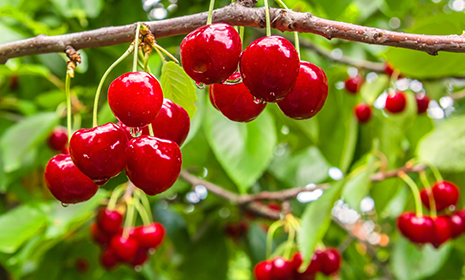
Recipes that make the most of sweet, juicy cherries...
